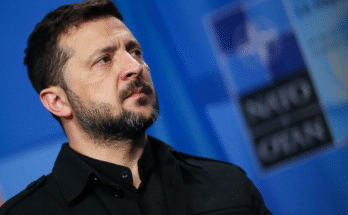KANANASKIS, Alberta – British Prime Minister Keir Starmer has arrived at the G7 summit in the Canadian Rockies with a clear objective: to position himself as the foremost “Trump whisperer” among European leaders. His team believes their concerted “love-bombing” strategy towards U.S. President Donald Trump, including conspicuous displays of warmth and a focus on personal rapport, will pay dividends.
The stakes at this G7 could not be higher. With escalating tensions between Israel and Iran, the ongoing war in Ukraine, and President Trump’s tariffs fueling a global trade conflict, leaders have much to discuss and even more to disagree on. Starmer, en route to Canada, emphasized the “intense discussions” expected on these fronts, while publicly highlighting his “good relationship with President Trump.”

The Personal Touch: A Calculated Gamble
A U.K. government official indicated that Britain’s recent commitment to increased defense spending strengthens Starmer’s hand in advocating for more U.S. support for Ukraine, potentially allowing him to bridge gaps with other G7 leaders. “It’s intensely personal with Trump. He likes to make deals one-on-one and so that personal relationship is key,” the official added.
Starmer’s charm offensive has been deliberate. During a March 3 Oval Office appearance, he was observed gently touching Trump’s arm four times in 100 seconds – a calculated display of affection from the typically reserved British leader. His advisors credit this “schmoozefest” for what they perceive as a warm relationship, citing Trump’s effusive praise for Starmer and a recent economic agreement to reduce tariffs. However, the tangible benefits of this rapport remain elusive, with tariff exemptions for British steel and cars recently delayed.
Europe’s Other Contenders for Trump’s Ear
Starmer is not alone in seeking to influence President Trump. French President Emmanuel Macron, a veteran of past Trump summits, sees himself as Europe’s most senior politician and has a decade of experience engaging with the former president. Meanwhile, Italian Prime Minister Giorgia Meloni leverages her ideological alignment with Trump and her deep connections within his “MAGA ecosystem.”
Former Trump national security adviser John Bolton noted, “in Trump’s mind, international relations are seen through the prism of the personal relations of the country’s leaders.” He recalled the highly scrutinized Macron-Trump handshakes of previous years, suggesting a similar dynamic could play out in Kananaskis. However, Bolton also cautioned Starmer against investing too much “political capital” in his bridging efforts between Europe and America.
Sanctions and Shifting Alliances
While personal diplomacy is a key European strategy, the European Union has also taken a more assertive stance on sanctions against Russia. European Commission President Ursula von der Leyen has called for a significant reduction in the Russia oil price cap, from $60 to $45, to intensify pressure on Moscow’s war machine – an effort supported by the U.K.
Fred Fleitz, a former Trump White House national security aide, suggested that Trump feels “disrespected” by Vladimir Putin’s refusal to engage in serious peace negotiations, potentially leading Trump to impose sanctions on Russia in the coming weeks. However, Fleitz also highlighted Trump’s strong dislike for the European Union as an institution.
Meloni’s Ideological Edge
Italian Prime Minister Giorgia Meloni presents a distinct approach, rooted in her own history of Euroscepticism and clear ideological proximity to the “MAGA” movement. Having come to power on a wave of Italian right-wing nationalism, Meloni has also demonstrated an ability to moderate in office and build strong personal relationships, making her an influential figure on the global stage, particularly on immigration policy.
Nicola Procaccini, a senior Brothers of Italy MEP, emphasized Meloni’s political closeness to Trump, distinguishing her from Starmer and Macron. He cited her role in facilitating a meeting between Vice President JD Vance and von der Leyen as an example of her “very important” contribution to this G7, adding that some EU leaders have allowed their “prejudice against Trump to prejudice them against the U.S.”
As the G7 unfolds in Kananaskis, the world’s media will be closely watching for subtle clues about the power dynamics among leaders and whether any of these calculated diplomatic overtures can translate into genuine progress on the critical issues facing the globe.



